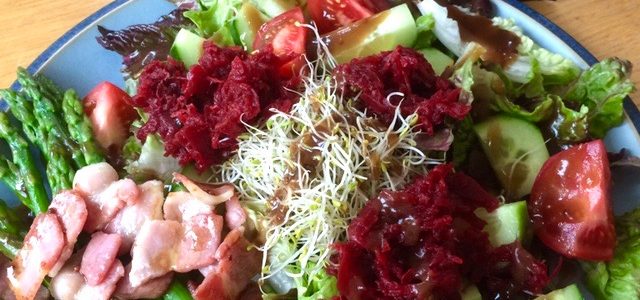Vegetarian alert!

IRON & Zinc ‘less available’
Most people are aware that iron and zinc are important nutrients for our health, but perhaps less known is that iron is the most common nutritional deficiency worldwide. Low levels can cause extreme fatigue, lightheadedness and poor temperature control. While some health conditions can actually induce an iron deficiency, being anaemic can also be a genetic thing, and blood-related genetic abnormalities can be inherited from a parent.
Iron deficiency affects all ages, with children, women who are pregnant or menstruating, and people receiving kidney dialysis among those at highest risk for this condition. Why should vegetarians be concerned?
The body uses iron to make haemaglobin, a protein in red blood cells whose main job is the transportation of oxygen around the body. There are two types of iron: ‘heme iron’ which is found in all types of meat (that we readily absorb), and ‘non-heme iron’ which is found in beans, pulses and plant-based foods, (which the body doesn’t absorb so easily). This is because plant Phytates which are naturally occurring in wholegrain cereals and pulses – bind with, and form insoluble compounds with essential minerals like iron, zinc, calcium, and magnesium whilst in the gastrointestinal tract, effectively blocking their absorption.
What about those manufactured meat-substitute foods, the processed plant-protein products boasting ‘high iron’ content? Iron and zinc do accumulate with the plant proteins extracted for use in meat substitute products, which rather conveniently enables the manufacturers to claim a high presence of these minerals in the product’s list of nutrients. What isn’t advertised is the fact that the minerals present are not readily available for absorption by the body. Even those products fortified with iron would still find its absorption inhibited in the presence of the plant phytates commonly occurring with plant proteins. The same problem of bio-availability and absorption occurs with zinc, leading to higher levels of zinc deficiency amongst vegetarians, but especially vegans.
Choose fermented foods
An exception is ‘Tempeh’, made from fermented soybeans, as the fermentation process uses microorganisms that efficiently break down phytates, neutralising their mineral binding potency.
Mycoproteins from Fungi have been used in human foods for a long time, and stand out for having a very high zinc content. Quorn is the best example of a well-known, readily available mycoprotein product, which does not contain phytates to hinder mineral absorption, although how well we actually break down and digest the cell walls of mycoproteins is still being researched.
Good news also for the Pescatarians out there, as the absorption of animal-derived heme-iron is less inhibited by the presence of plant phytates, and vitamin C can further enhance its absorption and bio-availability.
Nutrient sufficiency is easily tested using urinary organic acid tests. Book in via the contact page for a consultation if you would like a panel done to show the nutrient sufficiency of your diet.
References
Foster M et al., (2013) Effect of vegetarian diets on zinc status: a systematic review and meta-analysis of studies in humans. Review: J of the Science of Food and Agriculture 93(10):2362-71
